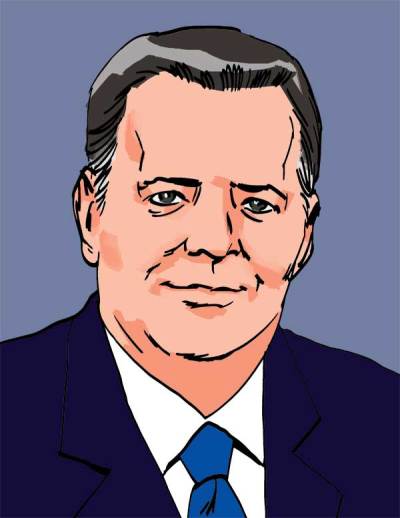Remembering the Role of Evangelicals on the Bill of Rights' Birthday

Today, June 8th, Americans and freedom-loving people everywhere commemorate one of the most momentous moments, not only in American history, but in human history.
On June 8, 1789, two-hundred and twenty-seven years ago, U.S. Representative James Madison of Virginia introduced a list of proposed amendments to the newly ratified U.S. Constitution. In fact, Madison presented these amendments in the first session of the first Congress elected under the new Constitution. These proposed amendments were finally adopted in revised form on December 15, 1791 and became known almost immediately as the "Bill of Rights." In proposing these amendments, James Madison was fulfilling a political pledge.
When the new Constitution was being proposed, there was fierce opposition by figures as prominent as Patrick Henry to replacing the Articles of Confederation with a new, more powerful federal Constitution. Why? The opponents feared too much federal power, and many were particularly, concerned about the possibility of a federal, government sponsored, national church under the new federal government that would discriminate against religious dissenters, as was already being done by official state churches in nine of the original thirteen states.
As a result of the First Great Awakening, an extraordinary spiritual revival that swept like wildfire across American colonies from New England to Georgia in the 1730s, 40s, and 50s, Baptists had become one of the largest denominations in America. The Baptists were fierce defenders of religious liberty, having been severely victimized by colonial government religious authorities. (For example, in the ten years prior to the Declaration of Independence in 1776, approximately 500 Baptist preachers were thrown into jail by local and state authorities in Virginia for "disturbing the peace," i.e., preaching the Gospel without a license from the state to do so.) Consequently, the Baptists were adamantly opposed to any government sponsored religion, federal or state.
Consequently, the vast majority of Baptists were planning to vote against ratifying the Constitution, virtually assuring its defeat in states like Virginia. James Madison and one of the most famous Baptist preachers of the era, John Leland, held a historic meeting in Orange County, Virginia. A monument commemorating the meeting still exists on the site today.
The result of that meeting was a political deal whereby Leland would exercise his considerable influence to urge Baptists to vote to ratify the new Constitution, and Madison in turn pledged to present amendments to the Constitution in the first Congress of the new government to guarantee no federal state church and no federal government interference with the free exercise of religious faith. Leland kept his end of the bargain and on June 8, 1789 Madison kept his word as well.
Madison told his fellow Congressmen that amending the Constitution to provide for the explicit protection of these rights would help "to satisfy the public mind that their liberties will be perpetual," explaining that Congress should "expressly declare the great rights of mankind secured under this Constitution."
Madison proposed the following freedoms that later became the First Amendment:
"The civil rights of none shall be abridged on account of religious belief or worship, nor shall any national religion be established, nor shall the full and equal rights of conscience be in any manner or in any pretext infringed. The people shall not be deprived or abridged of their right to speak, to write, or to publish their sentiments; and the freedom of the press as one of the great bulwarks of liberty shall be inviolable. The people shall not be restrained from peaceably assembling and consulting for their common good; nor for applying to the legislature by petitions, or remonstratives for redress of their grievances."
In its revised, ratified, permanent, and incandescent form, the First Amendment declares, "Congress shall make no law respecting an establishment of religion, or prohibiting the free exercise thereof, or abridging the freedom of speech, or of the press; or the right of the people peaceably to assemble, and to petition the Government for a redress of grievances."
It is very important to notice that both in its original and in its final, ratified form, freedom of speech, freedom of the press, freedom of assembly, and freedom to petition for redress of grievances are there as subsidiary rights to protect the first freedom, freedom to believe and worship as each person so believes — "soul freedom." It is often lost on modern commentators that this is the case. The first freedom is the freedom of conscience, the freedom of faith, freedom to worship as each individual pleases.
That is why this was such a great day for mankind. It is the declaration of each man's and each woman's right to worship and live according to the dictates of his or her own conscience, being recognized as a right by the government of the United States. It is a celebration and government acknowledgement of the God-given right proclaimed more than a decade earlier in the Declaration of Independence "that all men are created equal, that they are endowed by their Creator with certain unalienable Rights, that among these are Life, Liberty and the pursuit of Happiness."
On June 8, 1789 James Madison officially commenced the political process through which the foundational principle of the American Revolution became permanently enshrined in the United States Constitution on December 15, 1791. Ever since, these words and this proclamation of the inherent God-given right of all people to freedom of religion and conscience have served as both an inspiration and aspiration for freedom-loving people everywhere.





















